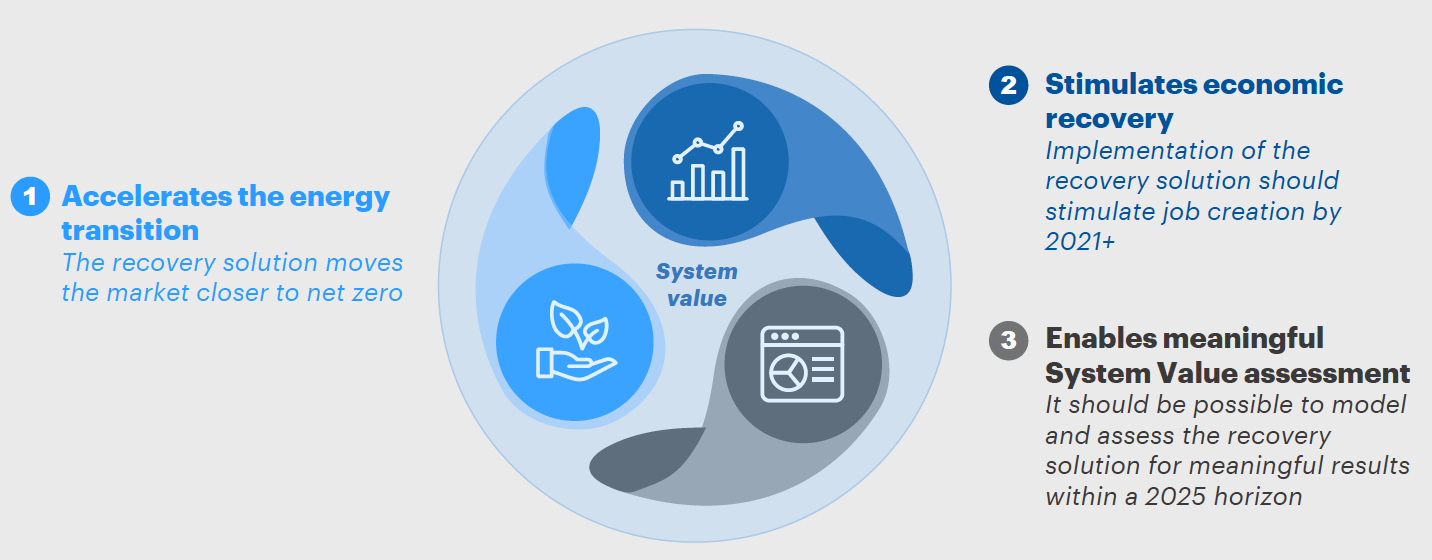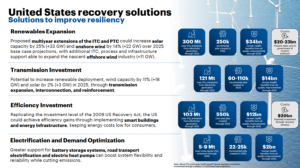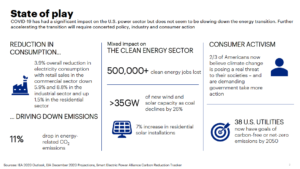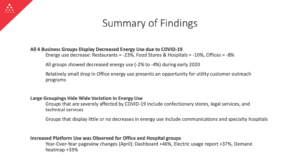
Last week, Clean Energy Trust held its first event of 2021, which featured a data-driven conversation on the future of energy. We invited energy professionals to join us as we consider what’s next and how we can learn from 2020.
At the event, Clean Energy Trust Director of Business Development and Partnerships Susie Spigelman moderated a conversation between Accenture Managing Director Caroline Narich and Agentis President and Co-founder John Lux. Both Caroline and John presented valuable, unique insights on the energy industry and how the COVID-19 pandemic impacted electricity use in 2020.
Find the key takeaways from the event below and watch the full event recording here:
The Pandemic’s Impact on the Energy Transition and Priorities for Recovery
Caroline Narich of Accenture’s Resources Strategy practice kicked off the event with a presentation on the World Economic Forum’s recently published System Value framework made with support from Accenture. This framework provides an overview of the pandemic’s impact on the energy transition and how we can accelerate this transition as part of the nation’s economic recovery plan.

Caroline expressed that she’s encouraged to see how broadly the System Value framework is being applied now — for policy advocacy, investment decisions, and rate cases. She also shared that while the COVID-19 pandemic has already had a significant impact on the U.S. power sector, it does not seem to be slowing down the energy transition. In fact, despite there being over 500,000 clean energy jobs lost in 2020, the renewable energy sector demonstrated its overall resilience and signaled to the markets that the industry is still in transition.

COVID-19’s Impact on Energy Use in Businesses
Following Caroline, John Lux, President and Co-Founder of Agentis (a Clean Energy Trust portfolio company), presented on COVID-19’s impact on energy use in businesses throughout the United States. For those unfamiliar with Agentis, they are a software as a service (Saas) technology platform for energy efficiency, cost-of-service reduction, and provide a digital customer experience. They currently serve over 3 million non-residential customers helping utilities provide businesses with energy insights.
Agentis’ data science team analyzed their energy data to answer the following two questions:
1) How has business energy been impacted by COVID-19?
2) Has platform behavior changed as energy use changed?
Their hypothesis was that restaurants and offices would decrease their energy use during the pandemic, while hospitals and grocery stores would likely increase their energy usage.

Through Agentis’ analysis of their energy data, they found that of the four business types examined (hospitals, offices, grocery stores, and restaurants), all businesses experienced significantly decreased energy use due to COVID-19. Check out the full event to see how John and his team’s hypothesis was proven wrong, and everything else they learned from their energy data analysis.
The event concluded with questions from energy professionals hungry for more insights for the new year. The main takeaways were that while the pandemic greatly impacted energy consumption in the United States, industry and utilities saw this energy decrease as an opportunity to analyze and optimize overall energy use to decrease costs and further prepare for the energy transition and economic recovery ahead. Energy professionals have a lot of work ahead of them, but they should be encouraged by the nation’s proven resiliency and numerous opportunities for improvement.

